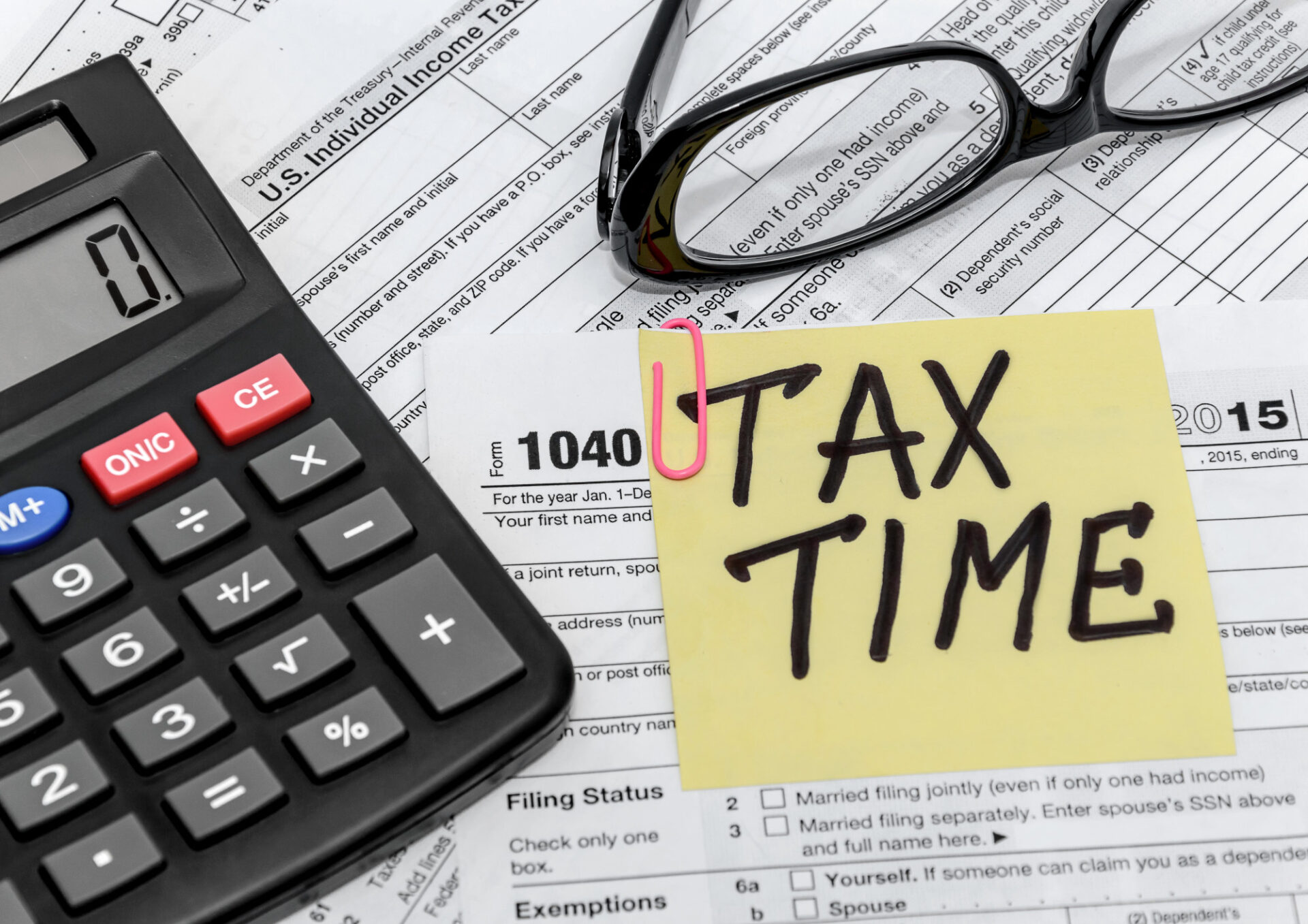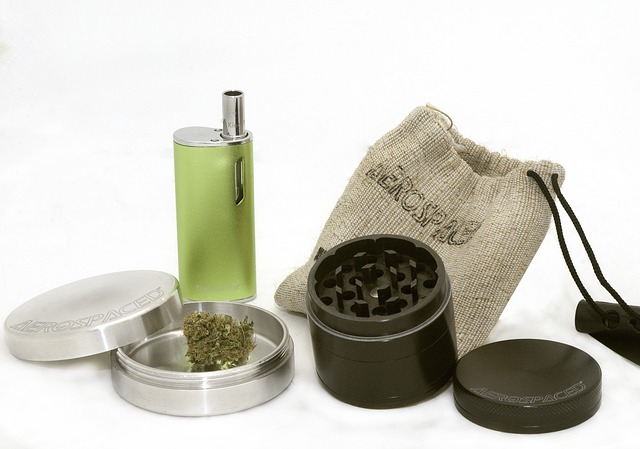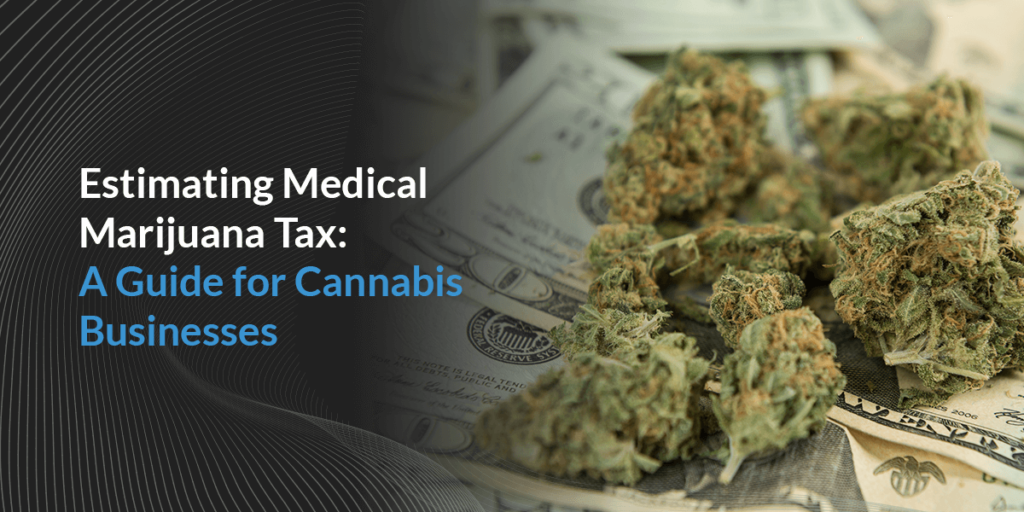
100+ Years of Combined Tax Resolution Experience.
100+ Years of Combined Tax Resolution Experience.
As a medical cannabis producer, you are on the vanguard of a prosperous industry where you offer a valuable alternative remedy for people who desperately need it. If your state has yet to allow recreational marijuana use, you are probably also ready to make the shift once the law allows. Of the many challenges you face, medical marijuana tax law is most critical for your business’ longevity.
Table of Contents
Tax Information to Know When You Own a Medical Marijuana Business
You’ve found the pot of gold at the end of the rainbow, but it’s sitting on the ever-shifting ground of cannabis tax law. You must move slowly and methodically to avoid getting mired in quicksand. Such is life for every marijuana business owner. Underestimating the law and tax rates for cannabis businesses has put many would-be entrepreneurs out of business before they could even begin.
The catch? Your operation may be legal in your state. However, under federal law, marijuana is still a controlled substance. You knew this already, but you may not know how this sticky position can affect you come tax season. That’s where we come in. The seasoned professionals at Polston Tax Resolution and Accounting will guide you to success by handling your cannabis business taxes the right way.
But the first step begins with you. As a business, estimating your taxes accurately gives you a leg up come tax season. This guide is everything you need to know to get started.
Medical Marijuana Tax: The Perils of Operating in a Legal Gray Area
First, every cannabis producer should know about a brief section of the tax law known as 280E. In a nutshell, it states that no business dealing in a controlled substance can claim any type of write-off. No deductions, no credits.
Most fledgling businesses stay afloat because they can write off expenses. Rent, supplies, etc., are costs that lower tax liability. Federal law allows this for every other industry, but not cannabis.
Marijuana taxation is steep. The lack of expense deductions means marijuana businesses pay significantly higher taxes and tax rates for medical marijuana businesses could be crippling. Is this a social penalty for selling drugs? Perhaps. But only Congress can change the law nationwide, and until that happens, this is your reality.
There is no way around paying these high taxes. But there is a way to mitigate the damage so that you can do business legitimately and thrive.
How Cannabis Tax Law Isn’t a Complete Buzzkill for Your Business
While 280E seems like a death knell for the average cannabis startup, you can write off some expenses, depending on your marijuana business.
More Deductions Exist for Producers Than for Retailers
If your cannabis business is on the production side, you’re in a better position. You can expense deductions as costs of goods sold. This tiny caveat of 280E means producers can write off any expenses involved with their cannabis crop, including:
- Seeding
- Cultivation
- Transportation of the crop
Score one for the growers! Reaching out to a tax attorney at Polston Tax and having us take care of your company’s tax deductions can simplify the process for you and give you the confidence that we’ll handle everything correctly.
An Option for Retailers
For a cannabis business involved with distribution or retail, there are still some options. Any company that “touches the leaf” receives the 280E treatment. So many entrepreneurs have tried opening an associated business that doesn’t deal directly in the bud itself.
Thanks to the CHAMP (California Helping Alleviate Medical Problems) ruling from 2007, non-producing cannabis businesses that can’t expense COGS can operate an affiliate business. This business can benefit from expense deductions, just like any other operation. This adjacent business can take many forms. For example, you might open a retail store for merchandise, or a yoga or wellness studio next door.
Another example cited in the CHAMP ruling is building ownership. As a retail operator, you might also own the building. In this case, you can separate your role as a landlord or property manager from the marijuana business. Reaping the tax benefits from this affiliate business has no doubt helped producers and distributors save serious cash.
However, all this might come to an end soon. Recent court rulings suggest that even these ancillary businesses can be subject to the 280E straightjacket. Unfortunately, if the taxman can prove the second business benefited directly from the sale of marijuana, there’s no tax break for you!
Medical Marijuana Tax Time Essentials
The nature of the cannabis business in the United States means the IRS will scrutinize you more closely, so your record-keeping must be nothing less than impeccable. Here is what needs your absolute attention to get you ready for tax season.
1. Record Every Transaction
Record everything, especially every sale. Because of marijuana’s federal status, banking is a notorious challenge for your industry. As a result, you likely deal in a lot of cash. The IRS knows this, and it spells the probability of unreported income.
To the taxman, failing to report income is even worse than writing off unjustified expenses. It’s a federal offense. So keep immaculate sales receipts. For a retailer, this means not letting a single cash sale slip through. For a distributor, it means filing IRS form 8300 for every customer purchasing product worth $10,000 or more.
2. Document Every Expense
Even though 280E can feel like suffocation for a marijuana business and opportunities for tax breaks seem to dwindle year after year, recording all your taxes is a vital practice for any business. It’s also necessary if you want to have an accurate balance sheet. So don’t neglect documenting an expense because of 280E. You may be overlooking a cost that can count as a COGS. So record it all and let us sort it out at Polston Tax.
3. Document Employee Tasks
This detail is lesser-known but still important to document. It applies specifically to dual entities.
For example, say your company produces and retails cannabis. Many of your employees may wear a few different hats. Maybe an employee spends part of the day in the greenhouse or on the farm cultivating, then moves on to budtending at the store. Their time spent in cultivation can count as a significant COGS expense, which isn’t something you’d want to miss.
4. Know Your State Marijuana Tax Rates for Businesses
Most states have an excise tax, in addition to sales tax. Make sure to consider all this when estimating your state taxes too. You are only legal because of your state, after all. At Polston Tax, we can help you understand the laws and taxes in your state so you’ll know what to expect come tax season.
How a Tax Attorney Can Help Cannabis Businesses
At Polston Tax, we want to be your full-service accounting partner for your cannabis business. We know how complex it can be to navigate cannabis laws, so we’ll help you overcome the regulatory challenges you may encounter. Our cannabis accounting and tax services include:
- Accounting software setup
- Documentation preparation
- Recommendations for setup
- Financials preparation each month
- Internal accounting process customization
- Advice on facilities’ layout to lower tax exposure
- Requirements and best practices for record-keeping
- Best practices to reduce your taxes and maximize deductions
- Integration of accounting software with cannabis tracking systems and point-of-sale systems
If you face an IRS audit, we can also offer audit representation to your cannabis business. IRS audits are incredibly common for businesses in the marijuana industry, and if you face one, you don’t have to navigate the process alone. We can provide audit review, preparation and representation services to identify and address issues that may be present in your organization, such as concerns with cash flow, internal controls and business processes.
At Polston Tax, we have designed our trusted services to help your cannabis business reach your unique goals and objectives.
With Our Help, You Can Thrive
Under-planning is not an option when it comes to estimated medical marijuana taxes. It can be perilous. At Polston Tax Resolution and Accounting, we will navigate you through this quicksand so you can reap the benefits of all your hard work and enjoy that pot of gold. Our services include:
- Tax return preparation
- Advanced tax planning
- Accounting and bookkeeping
- Small business tax and accounting
- Cannabis tax planning and accounting
We have more than 100 years of combined experience, and we can tailor our cannabis accounting and tax programs and services to your business’ needs. Trust us to plan and prepare your company’s local, state and federal income tax returns with the current taxation laws in mind. To learn more about our services and about the tax rates for your medical marijuana business, contact us at Polston Tax today.
More On Cannabis CPA Accounting & Tax Services
- Save Money: How to Pay Less Taxes on Your Cannabis Business
- The Benefits of a Tax Resolution Attorney for Your Cannabis Business
- Your Complete Guide to Understanding Cannabis Tax
- Why You Should Hire a Kansas Tax Attorney for Your Marijuana Business
- Where Does the Tax Money Go for Nevada Recreational Marijuana?
- What Does A Cannabis Bookkeeper Do?
Additional Readings

Since marijuana is becoming legalized in many states, more businesses are emerging to serve these new markets legally. If you’re a new marijuana company, you’re about to enter your first tax season. This is going to be much different than what you’ve experienced in doing taxes before. Read on to learn about marijuana taxes and...

The marijuana industry has generated more than $52 billion in sales and is expected to create 330,000 jobs by 2022. This is the best time to be in the marijuana industry, but because it’s so new, there are many potential pitfalls. The biggest potential pitfall is marijuana taxes. There are many marijuana tax issues that...

If there’s anything certain in life, it’s death and taxes. Even with the ever-growing and profitable Cannabis industry, there’s one thing that makes taxes feel like death—and that’s the 280E tax code. If you’re a budding entrepreneur coming up in the cannabis business, you’ll want to learn everything you can about 280E and more. You...

One of the keys to business success is understanding the tax rules and how they apply to or affect your company. In states where marijuana is legal for medical or recreational use, there are usually special taxes that apply to the sale of the drug. If you’re considering opening a dispensary or own one already,...

It’s never been a better time to consider starting a marijuana business. In the United States, the most commonly used, federally illegal drug is marijuana. Approximately 48.2 million Americans have used marijuana at least once. With new laws getting passed, the legalization of marijuana across the country is within reach. The global legal cannabis market is projected to reach $63...

As of early 2023, cannabis-related legislation for both medicinal and recreational use has passed in numerous states. In fact, more states have legalized marijuana for either medicinal or recreational use than states that have not. With states rapidly approving marijuana legislature, cannabis sales are quickly becoming a large component of the American economy. By the end of 2023, marijuana retail sales...


